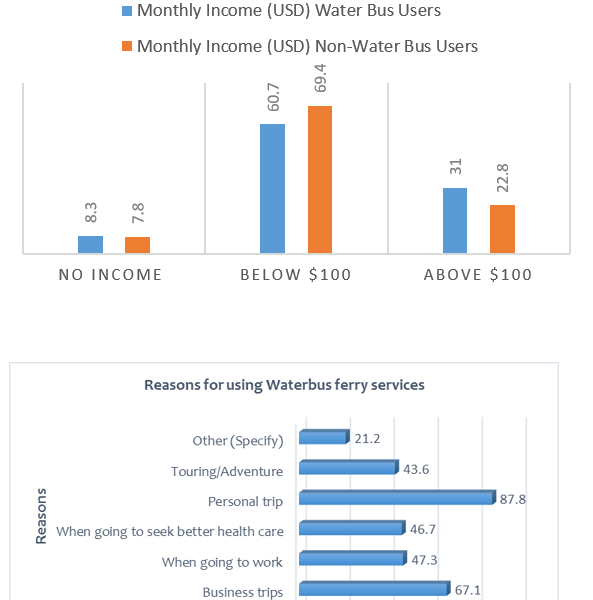Globology’s ‘Waterbus’ is the leading water transportation service on Lake Victoria and currently operates four routes: Mageta Island to Usenge, North Mfangano Island to Mbita, Louanda Kotieno to Mbita, and Remba Island-Mfangano West to Mbita.
Although Globology provides a unique solution that can help improve rural water transportation (RWT), there is limited data both locally and nationally on the importance and impact of RWT providers for consumers.
In April 2018, Shell Foundation and Globology commissioned a consumer research study to explore the actual and potential impact of Globology’s RWT services on consumers in the Lake Victoria region and identify new markets for Globology’s services.
The evaluation focused on the four routes currently being used by the Waterbus. It involved survey interviews with 521 respondents and focus groups and interviews with local business leaders, maritime authorities, community leaders, labour unions.

